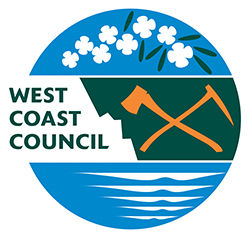A newly released report shows fly-in/fly-out (FIFO) and drive-in/drive-out (DIDO) workers earn roughly double than resident workers undertaking similar jobs on the West Coast, causing an increased hollowing out of the local community.
A study from the University of Tasmania commissioned by the West Coast Council has reported on the prevalence and concerns over the impact FIFO and DIDO workers in the region accounting for 42.5% of gross wages despite only accounting for 31% of the workforce.
West Coast Council Mayor Shane Pitt said the West Coast faces different challenges than the rest of Tasmania.
“These workers are essential to keep our booming mining, agricultural, and aquaculture industries viable but the population on the West Coast has been undergoing a long-term decline with fly-over effects creating a hollow economy and lack of liveability,” Mayor Pitt said.
“Demographic projections from the report have projected further decline in the order of 30% by the early 2040s, which is the steepest downward trajectory in the state.
“An improved West Coast is vital to a thriving Tasmania. Population growth is key to strengthening the economy and to achieve this we need help addressing the distinct economic circumstances so we can drive inequality reduction and increase the capacity of vital Tasmanian industries.
“Around 675 of the 2140 people employed on the West Coast lived more than 100km from their place of work at the time of the 2021 census.
“Most non-resident workers on the West Coast, some 68%, are employed in the mining industry, resulting in just over 50% of the West Coast’s mining workforce being DIDO workers.
“Whilst mining payments increase our economic activity, it dramatically raises the cost of living and drives the people out when the funds don’t go back into the community.
collaborating with all levels of government we can implement effective liveability strategies through funding services, improving amenities, and investing in safe, affordable housing to turn commuters into long-term residents.”
Professor Richard Eccleston said there is evidence of high levels of DIDO work hollowing out regional communities.
“On the West Coast, 42% of salaries effectively leave the community making it more difficult to provide services for residents,” Professor Eccleston said.
“Our detailed analysis of 2021 census data revealed that 31% of workers on the West Coast live outside the community, the highest in the State, and this percentage has more than doubled over the last 15 years.
“The underlying causes of long-distance commuting are complex, and we need a collaborative approach to improving housing, services, and infrastructure so that more workers and their families can live on the West Coast.
“Many of Tasmania’s most important industries are based on the West Coast and it is important we develop creative strategies to ensure the long-term sustainability of the communities that support them.”
Mayor Pitt said West Coast Council remained open to discussions to introduce regional partnerships and further asked for dedicated consideration for the removal of the exemption from rates for Hydro Tasmania dams, review of planning laws and royalties’ distributions, the rectification of valuation anomaly for wind farms, and the creation of regional sustainability funds fees back into host communities.
“These initiatives will help level the playing field for the West Coast and achieve better outcomes for our community whilst ensuring our important industries remain viable,” Mayor Pitt said.
The report shows:
- Some 68% of non-resident workers are employed in the mining industry.
- In 2021, around 675 of the 2140 people employed on the West Coast lived over 100km from their work.
- West Coast LGA hosts the highest share of non-resident workers in the State – around 31%.
- Gross values of wages earned by FIFO/DIDO workers are likely in the region of $71 million annually.
- A significant portion of the wealth, 42% of salaries, earned on the West Coast is spent in surrounding communities.
Enquires to;
David Midson
General Manager
0435 077 235
